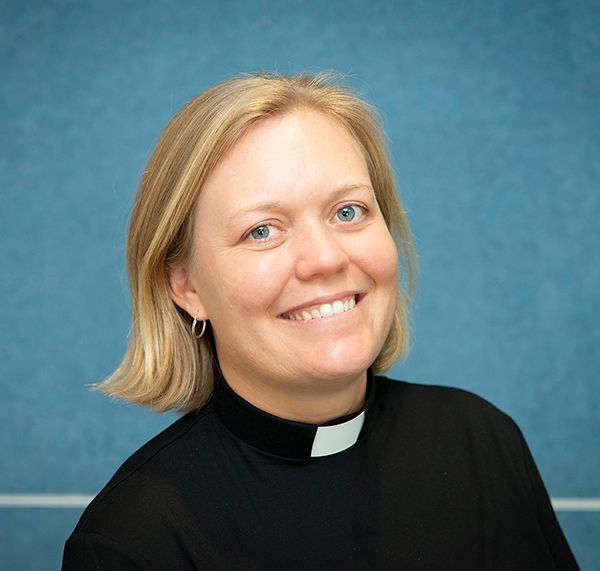My Messy House
By Rev. Dr Katherine Rainger, Senior Chaplain
“People were bringing little children to Jesus for him to bless them, but the disciples rebuked them. When Jesus saw this, he was indignant. He said to them, ‘Let the little children come to me, and do not hinder them, for the kingdom of God belongs to such as these. Truly I tell you, anyone who will not receive the kingdom of God like a little child will never enter it.’ And he took the children in his arms, placed his hands on them and blessed them" - Mark 10:13-16.

The Godly Play story of Jesus and the children is a favourite with Pre-Kindergarten students. One of the ‘wondering’ questions I ask is: “I wonder how the children felt when they talked to Jesus?” Last week a child said, “happy and sad.” I responded with another question, “I wonder why they felt happy and sad?” “They felt happy and sad because they talked about happy and sad things,” was the reply.
So much of life is a combination of “happy and sad”. This child’s response put “happy and sad” within the context of faith, where both “happy and sad” are given space in the presence of God in the person of Jesus. All of life can be brought into conversation with God. We can drop all pretence; we have nothing to prove.
The following reflection by Kathleen Norris, published in her book Amazing Grace: A Vocabulary of Faith, takes up this idea of the honesty we can bring into our relationship with God and the wisdom of children in showing the path to spiritual growth.
When I’m working as an artist-in-residence at parochial schools, I like to read the psalms out loud to inspire the students, who are usually not aware that the snippets they sing at Mass are among the greatest poems in the world. But I have found that when I have asked children to write their own psalms, their poems often have an emotional directness that is similar to that of the Biblical Psalter. They know what it’s like to be small in a world designed for big people, to feel lost and abandoned. Children are frequently astonished to discover that the psalmists so freely express the more unacceptable emotions, sadness and even anger, even anger at God, and all of this is in the Bible that they hear/read in church on Sunday morning.
Children who are picked on by their big brothers and sisters can be remarkably adept when it comes to writing cursing psalms, and I believe that the writing process offers them a safe haven in which to work through their desires for vengeance in a healthy way. Once a little boy wrote a poem called, “The Monster Who Was Sorry.” He began by admitting that he hates it when his father yells at him: his response in the poem is to throw his sister down the stairs, and then to wreck his room, and finally to wreck the whole town. The poem concludes: “Then I sit in my messy house and say to myself, ‘I shouldn’t have done all that.'”
“My messy house” says it all: with more honesty than most adults could have mustered, the boy made a metaphor for himself that admitted the depth of his rage and also gave him a way out. If that boy had been a novice in the fourth-century monastic desert, his elders might have told him that he was well on the way toward repentance, no such a monster after all, but only human. If the house is messy, they might have said, why not clean it up, why not make it into a place where God might wish to dwell?
Kathleen’s reflection brings the Psalms in the Bible into conversation with children’s experiences of all the emotions that are part of the human condition. The perspective that I would add is that God chooses to dwell with us, regardless of the state of our metaphorical house. The invitation of Lent is to recognise that we can’t “clean it up” on our own. It is the love, grace and mercy of God that brings healing and hope into our hearts and homes.
